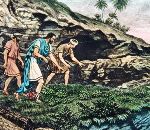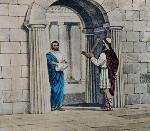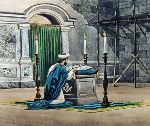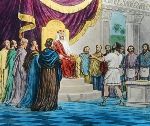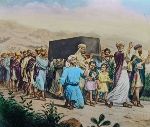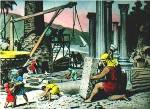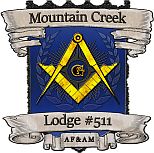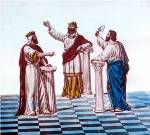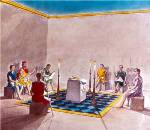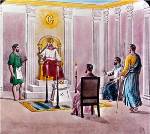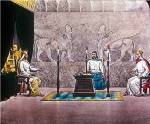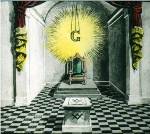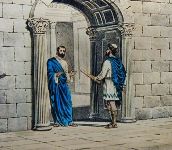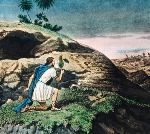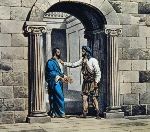
Mountain Creek Masonic Lodge # 511 A.F. & A.M.
110 1/2 N Center St, Grand Prairie, TX 75050
Lodge Phone: (972) 262-6560
Frequently Asked Questions
- What is Freemasonry?
- Who are Freemasons?
- What do Freemasons believe in?
- What do Freemasons do?
- What are the qualifications for being a Freemason?
- How does a man become a Freemason?
- What is a Masonic Lodge?
- What are the Masonic degrees?
- What Freemasonry is not. . .
What is Freemasonry?
Freemasonry is the world’s oldest and largest Fraternity. Its
history and tradition date to antiquity. Its singular purpose is to
make good men better. Its bonds of friendship, compassion, and
brotherly love have survived even the most divisive political,
military, and religious conflicts through the centuries. Freemasonry
is neither a forum for, nor a place of , worship. Instead, it is a
friend to all religions which are based on the belief in one God.
There have been a number of definitions of Freemasonry, though
perhaps the most direct is employed by English Freemasons:
“Freemasonry is a beautiful system of morality veiled in allegory,
and illustrated by symbols.”
The system of morality referred to undoubtedly includes
principles with which candidates are more or less familiar before
their entrance into Masonry. They, nevertheless, find these
principles presented in new ways and under forms different from
those which they have known in the past. The essence of morality is
to be found in the utter simplicity (though not the ease) of
Masonry’s requirements.
Symbolism reaches a high degree of development in Freemasonry,
and is largely responsible for its universality. Men of different
tongues may find it difficult to reach a common understanding; but
symbols enable all men to comprehend each other without the
necessity of any spoken word. The symbolism of Freemasonry deals
with the intellectual, moral, and spiritual values of life.
There is nothing of a light or trifling character in Freemasonry.
Any intimations to the contrary are patently false. A Masonic Lodge
is a place wherein members are content to love and serve their
brothers, to honor their God, and to learn the many lessons that
Masonry seeks to teach.
Who are Freemasons?
Many of our nation’s early patriots were Freemasons--George
Washington, the Marquis de LaFayette, Benjamin Franklin, John
Hancock, Paul Revere, John Paul Jones, Rufus King, James Otis, Baron
von Steuben, and Joseph Warren--as were 13 signers of the
Constitution. Fourteen Presidents, beginning with Washington, and 18
Vice-Presidents were Masons. Five Chief Justices of the U.S. Supreme
Court--Oliver Ellsworth, John Marshall, William Howard Taft,
Frederick Vinson, and Earl Warren--were Freemasons, and the ranks of
Masonry have included a majority of Supreme Court Justices, of
Governors of States, of members of the U.S. Senate, and a large
percentage of members of the U.S. House of Representatives.
Famous Masons include Simon Bolivar, James Boswell, Robert Burns,
Edward VII, Giuseppe Garibaldi, George VI, Goethe, Rudyard Kipling,
Haydn, Mozart, Will Rogers, Sir Walter Scott, Jean Sibelius,
Voltaire, and many others.
Today, the more than four million Freemasons around the world
come from virtually every occupation and profession. Within the
Fraternity, however, they all meet as equals. They come from diverse
political ideologies, but they meet as friends. They come from
virtually every religious belief, but they all believe in one God.
One of the most fascinating aspects of Freemasonry has always
been how so many men, from so many different walks of life, can meet
together in peace, never have any political or religious debates,
always conduct their affairs in harmony and friendship, and call
each other “Brother.”
What do Freemasons believe in?
All Freemasons believe in one God and respect for each other.
What do Freemasons do?
Freemasons are respectable citizens who are taught to conform to
the moral laws of society and abide by the laws of the government
under which they live. They are men of charity and good works. They
remain unchallenged as “the world’s greatest philanthropy.”
The Freemasons of America contribute more than one million
dollars every day to charitable causes which they, alone, have
established. These services to mankind represent an unparalleled
example of the humanitarian concern of this unique and honorable
Fraternity.
What are the qualifications for being a Freemason?
Freemasonry is proud of its philosophy and practice of “making
good men better.” Only individuals believed to be of the finest
character are favorably considered for membership. Every applicant
must advocate his belief in the existence of a Supreme Being
(atheists are not accepted into the Fraternity).
How does a man become a Freemason?
In most Masonic Jurisdictions, an individual must ask a Masonic friend to recommend him for membership. He must sign a petition, stating his age, occupation, and place of residence. Members of the Lodge vote by secret ballot which, in most Jurisdictions, must be unanimous.
Petition for the Degrees of Freemasonry
![]()
click on text to download PDF document
What is a Masonic Lodge?
Most Masonic Lodges meet at least one evening a month to conduct
their regular business and vote on petitions for membership. It is
here that the bonds of friendship and fellowship are strengthened.
What are the Masonic Degrees?
A Candidate receives three Masonic Degrees, concluding with the Third (or Master Mason’s) Degree. The Degrees are solemn, enlightening, and an enjoyable experience with no uncomfortable or embarrassing moments. It is here where the principles of Freemasonry are taught and where the new member learns that his family and his livelihood are to be considered above Freemasonry. Every Master Mason is welcomed as a “Brother” in any of the thousands of Regular Masonic Lodges throughout the world.What Freemasonry is not. . .
It is often necessary to point out some things that Freemasonry
is not and has never claimed to be:
Freemasonry is not a religion. It has a philosophy of its
own that is in harmony with churches, schools, and all other worthy
institutions. The teachings of the Fraternity transcend all
denominational and sectional divisions. Its sympathies are as broad
as humanity.
Freemasonry is not, itself, a charitable institution. One
of the fundamental principles of Freemasonry is the practice of
charity and a Mason necessarily contributes to the relief of the
afflicted according to his ability, but this and similar modes of
conduct must proceed from a purity of life and conduct that is one
of the great objectives of all Masonic teachings.
Freemasonry does not insure its members against the
detrimental effects of old age, provides no sick benefits, issues no
policies on the lives of its members, and pays no death benefits of
any kind. The matter of individual relief is confined to those
cases where it is necessary, in spite of all the efforts of a
brother or of his family to maintain economic independence. A
member’s part in this procedure is far more likely to be that of a
contributor rather than a beneficiary.
Freemasonry does not lend itself as a means of promoting
selfish interests. Any underlying purpose of such a nature will
eventually become apparent to other members and one will eventually
suffer the loss of their respect as a result.
